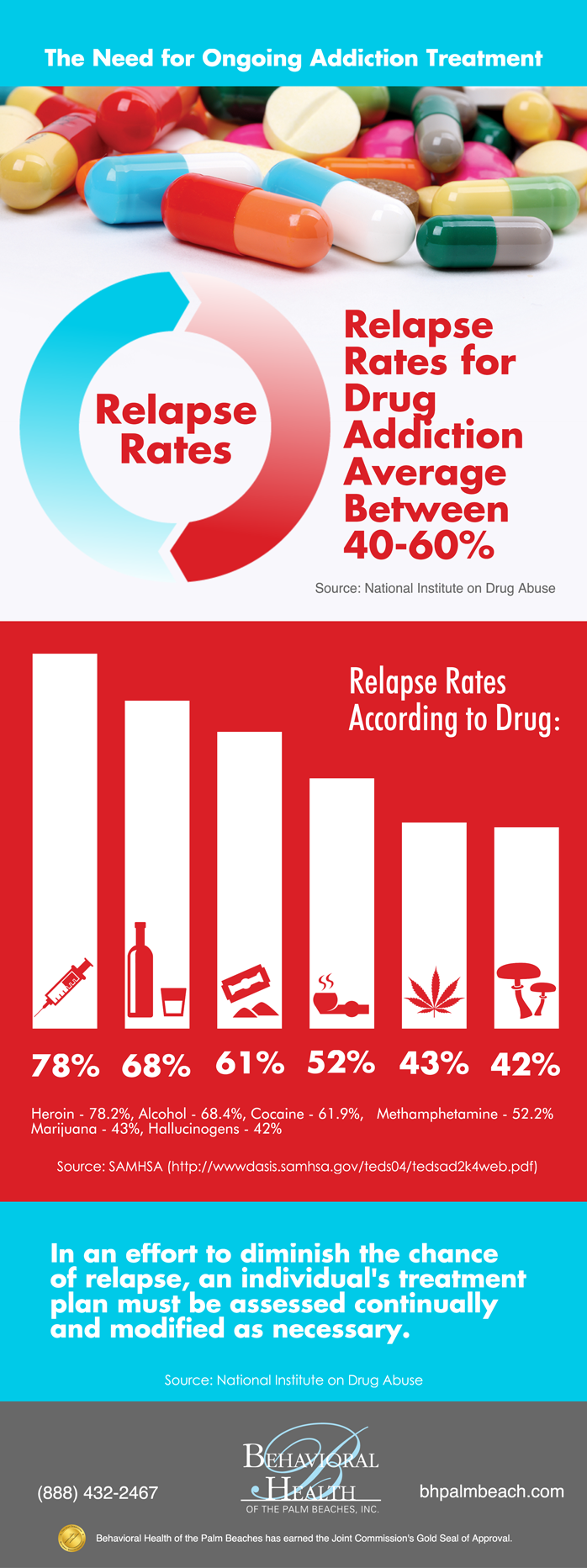Attending To Triggers And Temptations Following Drug Rehabilitation
Attending To Triggers And Temptations Following Drug Rehabilitation
Blog Article
Article By-Bojesen Aguirre
You've finished Drug rehabilitation and taken a considerable action towards a healthier lifestyle. And now, facing triggers and yearnings post-rehab can be a difficult trip. Just how do you navigate via these moments without endangering your progression? Understanding the approaches to manage triggers and yearnings is crucial in keeping your sobriety. Let's explore reliable methods to handle these difficulties and protect your newly found commitment to living a drug-free life.
Determining Triggers and Food Cravings
To effectively manage your triggers and desires, start by acknowledging the circumstances or emotions that cause your need to use. Take a moment to review what conditions or feelings prompt your food cravings. Is it stress and anxiety, boredom, social situations, or specific locations? By determining these triggers, you can better prepare yourself to cope with them.
Triggers can be both internal, such as adverse emotions or physical discomfort, and outside, like being around people who make use of substances or going to a certain place.
Read Home on patterns in your desires-- are they a lot more regular at certain times of the day or in action to certain events?
Building Healthy Coping Methods
Determining your triggers and food cravings is the very first step in the direction of building healthy and balanced coping approaches to manage them properly. As soon as you know what scenarios, emotions, or people trigger your cravings, you can begin developing a strategy to resolve them.
One efficient strategy is to replace negative behaviors with favorable ones. For instance, if stress activates cravings, practicing relaxation strategies like deep breathing or meditation can help. Participating in physical activities such as workout or going with a walk can likewise be a wonderful means to manage food cravings.
An additional vital facet of building healthy coping strategies is to produce a helpful setting. Surround on https://postheaven.net/gianna21glennie/ways-to-help-a-loved-one-during-drug-recovery with people who understand your journey and can supply support and responsibility. It is very important to establish limits with people who may not sustain your healing.
Furthermore, creating a regimen that consists of healthy and balanced practices like regular exercise, correct nutrition, and sufficient rest can aid you stay on track and minimize the chance of experiencing triggers and desires.
Seeking Support and Liability
Developing a network of helpful people that can provide support and hold you accountable is essential in managing triggers and yearnings successfully. Look for good friends, member of the family, or a support system that recognize your trip and can use advice when you deal with tough situations.
Having someone to talk to throughout moments of lure can make a considerable distinction in remaining on track with your recovery. Responsibility companions can assist you stay concentrated on your objectives and advise you of the reasons you chose to look for help to begin with.
They can additionally assist in creating a structured plan to deal with triggers and yearnings, such as creating different activities or dealing devices to replace the urge to utilize medicines. Normal check-ins with your support group can provide peace of mind and inspiration, helping you feel much less separated in your healing journey.
Verdict
Keep in mind, acknowledging and dealing with triggers and yearnings after Drug rehab is a key part of preserving sobriety.
By identifying your triggers, constructing healthy and balanced coping techniques, and seeking support from liked ones or support groups, you can navigate via challenging minutes and remain concentrated on your soberness objectives.
Remember, you aren't alone in this trip, and with the right tools and assistance, you can overcome lures and live a meeting, drug-free life.
Stay https://health.usnews.com/health-care/patient-advice/articles/signs-of-addiction and maintain moving on.
